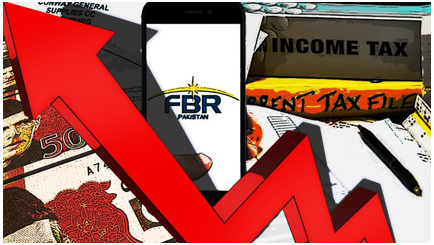INP-WealthPk
Ahmed Khan Malik
Sindh’s industrial sector has proposed rationalization of provincial taxes to facilitate the manufacturing sector. Talking to WealthPK, the industry leaders said taxes and tariffs were very high compared to those charged in other provinces, creating a tough competitive environment for the export sector.

“The industry demands consolidation of multiple provincial laws into a single legislation with one-window regulations to help promote industrialization in the province,” Moeed Hussain, Secretary of Sindh Chemical Industries Association, told WealthPK. He also sought a mechanism for rationalizing the rates of water, power, telephone and POL products for the export sectors countrywide, saying tariff discrimination against Sindh industries should end.

He pointed out that an exemption had been announced for the industries from the Sindh Infrastructure Development Cess in 2022-23 but it was not notified. He also demanded SITE’s transformation into an independent development and management company like the industries functioning in other industrial areas of the province and hoped that it will provide the industrial stakeholders with liberty to monitor and complete the development work in their zone without bureaucratic hurdles. Talking to WealthPK, Hafeez Siddiqui, a Korangi-based textiles industrialist, called for streamlining all the regulatory matters to facilitate industries, besides improving the road infrastructure.
He said the Sindh government had announced digitization of all departments, including the revenue department, but no practical work was seen on the ground. Hafeez said 19 to 20 different federal and provincial taxes were currently levied on industrial sector or manufacturing units, increasing the cost of doing business. The manufacturing sector’s share in the GDP is 20 percent, yet their contribution to the taxes is over 60 percent, he said. Except corporate income tax, the remaining federal and provincial taxes were indirect collected in the sales tax mode, thus increasing the cost of production, which was ultimately passed onto the consumers and thereby contributing to inflation, he added.
Nizam Samajeo, Director of Industry Department, told WealthPK that Sindh was highly urbanized with a large manufacturing base. He said the provincial government had initiated a number of programs to improve governance, one of which involves tax policy and administration. He said the aims of the government include increasing own-source revenue, improving efficiency and equity of the provincial taxation system, lowering the administration and compliance costs, and enhancing voluntary tax compliance.
All of these objectives will be met through well-planned and sustained efforts aimed at modernizing tax administration, he said. He pointed out that due to the centralized nature of fiscal administration in Pakistan, Sindh had been left with very limited option to tax, as it depended on the federal government for revenue transfers in order to finance its budgets. However, the industries’ complaints are being addressed, as the provincial government is working on rationalization of taxes.
Credit: INP-WealthPk













